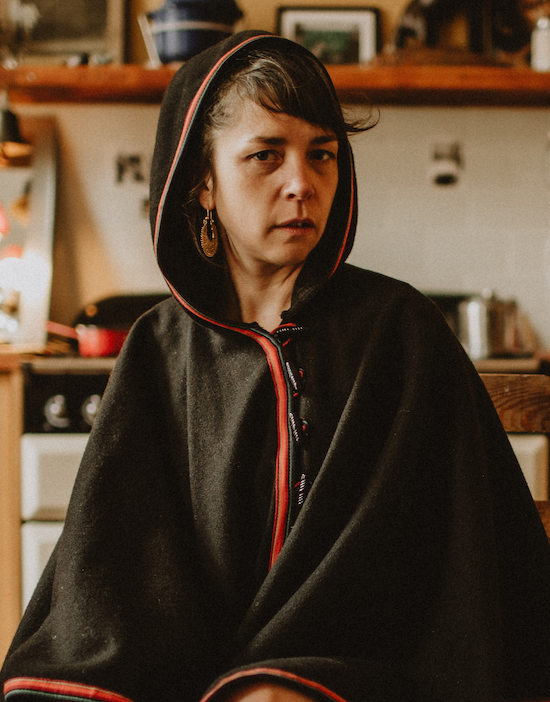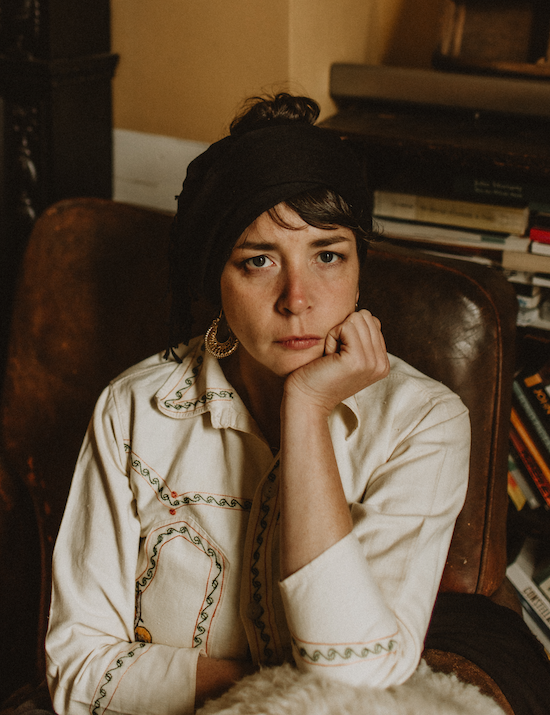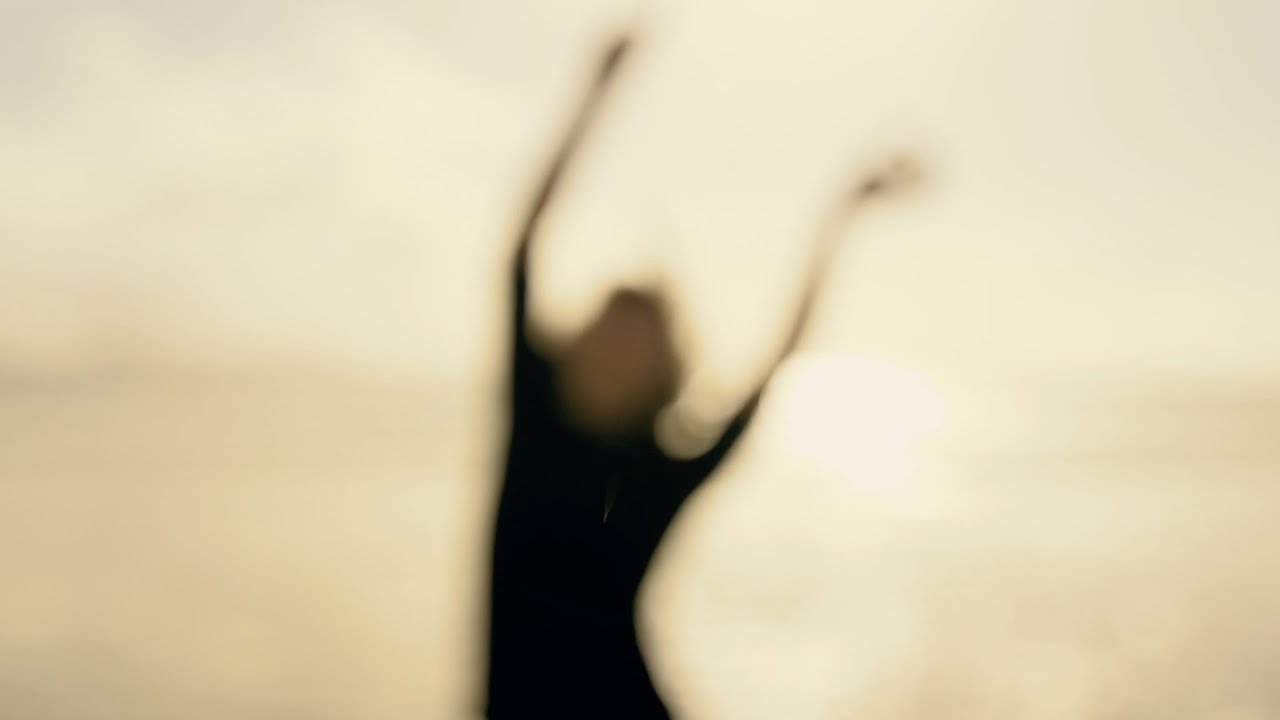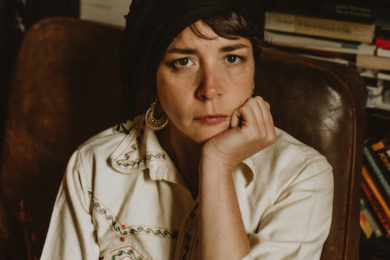Photos by Keri Leigh
Birds are a recurring motif in the songs of Lisa O’Neill, so it’s fitting that, within five minutes of our interview beginning, she has reached for the avian world in order to make a point about the value of letting go. Or, to be more specific, to illustrate the limitations of putting "such heavy emphasis on how the world sees us", and how this warps how we see ourselves. “A bird knows they don’t have control of the wind. They’ve learned enough to navigate it, but they have to take risks”, O’Neill says. "We can’t control the moment", she adds, "but we can enjoy it, we can get into it when we let go."
It certainly explains how O’Neill’s new album All Of This Is Chance arrived in the world; the title derives specifically from this idea. It’s also a record where tradition and modernity, history and stories playing out in the restless now, the yearning for freedom and righteous anger at repression are in constant dialogue with each other.
Appropriately, a key moment in the album’s creation came via chance in 2020, when Dublin’s Abbey Theatre invited O’Neill to perform as part of an outdoor adaptation of The Great Hunger, a long poem by the Irish writer Patrick Kavanagh first published in 1942, staged in the grounds of the Irish Museum Of Modern Art. The poem fascinated O’Neill, so much so that she uses Kavanagh’s words on the album’s first and title track: "Clay is the word and clay is the flesh / Where the potato-gatherers like mechanised scarecrows / Move along the side-fall of the hill,” she recites with insistent urgency.
In choosing the title The Great Hunger, Kavanagh was referencing the famines that afflicted Ireland in the 1840s, when more than a million people died and another million emigrated. But Kavanagh was also writing about something else, about the way agrarian life can be, in O’Neill’s words, "an oppression of the imagination and of the spirit." The idea of an "overemphasis on passion for the land", linked to a kind of intergenerational trauma rooted in events in the 19th century, is central to the song.
"In Kavanagh’s poem, he’s writing about a man in his 40s", O’Neill says, "and he’s looking out onto his perfect fields and he’s thinking, ‘But is this it? My field is fertile, but what about I? What is this life? What is this existence?’" The land has begun to control the farmer in a way he can’t quite fathom. For all the richness of the earth, Kavanagh depicts lives that are sexually arid and, thanks to the influence of Catholicism, repressed.
There’s a sense of claustrophobia inherent in these ideas that in other hands could easily overwhelm the album, but there’s nothing claustrophobic about All Of This Is Chance. It’s an expansive, widescreen record. While the title track creates a mood that gently percolates through the rest of the album, O’Neill never lets the bleakness win. "I’m trying to say we’re all connected to the bigger universe, we’re connected to the apples in the trees and the stars in the sky," she says.
There’s a deep connection to nature in both ‘Old Note’ ("I long to live among the song of birdies") and ‘Birdy From Another Realm’, which deals with the cuckoo as a trickster to the warbler. There are urban scenes too, as on ‘If I Was A Painter’ in which O’Neill details being fearful on the London Underground but also plots her escape to a place "where every colour is born without sin". In response to the way Kavanagh talks about repression in rural life, the idea that religion has borne down particularly heavily on Irish women is also woven through.

The album has already met with huge acclaim and, when taken in conjunction with O’Neill being asked to cover Bob Dylan’s ‘All The Tired Horses’ for the finale of Peaky Blinders (she’s immensely grateful for the commission and glad she didn’t have time to overthink it), she seems destined to reach greater and greater audiences. That she is already more than ready for an increase in stature was abundantly clear when I saw O’Neill play outdoors at the Boiling Wells Amphitheatre in Bristol last year. On a September evening, she brought warmth and humour to make you forget how damp the ground was, how chill the air.
Yet for all she chatted easily with her audience, weaving stories around the stories she was telling in her songs, there was a sense that O’Neill remained somehow elusive. While she’s friendly and easy to chat with down the line from her home in Ireland, she is sometimes cautious. She is, for instance, "reluctant" to discuss the politics that went with being raised in the 1980s in Ballyhaise, County Cavan close to the border with Northern Ireland. Nevertheless, she does talk about a pre-Good Friday Agreement era of passing British soldiers when her father went across the border to buy petrol. "It’s dark," she says. "Turning on the news in the evening, you would hear about a bomb scare up the road. Our parents protected us a little. If I got scared and said, ‘What does it mean? Is it going to happen to us?’ Dad would say, ‘No. We’re on the other side of the border. Don’t worry, it’s far away.’ But it wasn’t far away."
She’s much more relaxed talking about how close she was to her brother, Daniel, born when she was 12. When O’Neill wasn’t at school, she says, "He was on my hip, and he was beside me all the time until the day I left." It was "massive" that leaving home meant leaving Daniel. Born during a mini-baby boom, there wasn’t always room for O’Neill and her cohorts at the local school. Instead, an agricultural college located in the "grounds of this beautiful old estate along the river" became a makeshift educational space. "We had a bigger classroom than you could imagine, with a stage. And we had a teacher who really wanted to play with that stage," she remembers of a schooling that often included live theatre performances.
She clearly still feels a deep connection to the area and yet there’s an underlying tension here too. Again she picks her words carefully, stressing she doesn’t want to upset anyone. "We need to be able to see the world from a different viewing point," she says, as we discuss the need to leave a place where you feel a sense of belonging. "Anyone with a creative mind, there’s a hunger for that." For O’Neill, this meant moving to Dublin. "I did want to go, but I didn’t," she remembers. "I liked home and I like routine and my people, and I couldn’t imagine the world without them. But it didn’t take me long to be surrounded by magical people. I went to college to study music. So all of a sudden, everyone in my class loved music as much as I did and that was just like, ‘Wow, this is amazing.’"

A quartet of records came between 2009 and 2018, each of which has gradually built her reputation and improved on its predecessor. Her voice has grown more distinctive, her songs less whimsical but more bold and fantastical. The leap to All Of This Is Chance, however, is huge. O’Neill’s songs have always told stories and been rich in detail, but this time around there’s more space in the arrangements. Had circumstances been different, however, it might not have been so. Delays enforced by the coronavirus pandemic had a huge effect, she says. "I think I would be delivering a different record if we were not stopped in our tracks in 2020-21. I had to sit with it for longer, I had difficult phases, personally, being locked down and with my work for so long to the point where I started to reimagine it with a new layer and another new layer. So the tension [on the album] is all part of feeling a bit trapped. [Feeling like] I want to be somewhere else.”
Although she found the pandemic tough, she did sometimes enjoy the solitude. "When I take breaks to write, I usually rent a cottage or go away somewhere between traveling and spend two weeks just focusing on all the ideas that I collected. All of a sudden, I had an endless phase of that, and I was like, ‘This is amazing.’ I’ve never had a long period like this where I just get to go down the rabbit hole of my ideas and just really go for it. But then I started to get lonely and fed up – I didn’t figure out for a long time that I have a hunger to be around others."
It brings us back to the present moment and the chance moments that brought her here. "When I chose [the title] All Of This Is Chance, I’m trying to go right back to conception," she says. "Even that moment, everything that happens around it, means it may or may not have happened, you know? I like that idea. Yeah, I could have easily not have been born if my parents had had a different conversation that evening."
All Of This Is Chance is out now via Rough Trade




